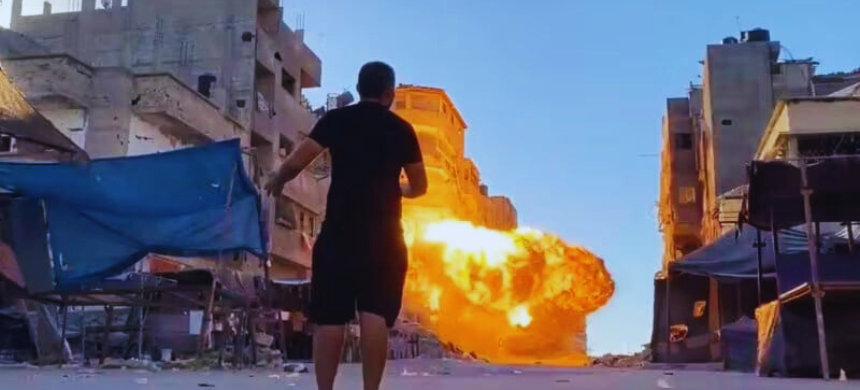On Wednesday, Hamas announced it would not participate in upcoming Gaza ceasefire talks scheduled for Thursday in Qatar, dampening hopes for a negotiated truce that, according to Iranian sources, might prevent an Iranian attack on Israel.
Despite Hamas’ refusal, the U.S. still expects the indirect negotiations in Doha to proceed as planned. The U.S. had anticipated a ceasefire agreement, but reports from Axios suggest that Secretary of State Antony Blinken has postponed his trip to the Middle East, initially slated to begin on Tuesday.
Three senior Iranian officials indicated that only a ceasefire in Gaza could prevent Iran from directly retaliating against Israel for the recent assassination of Hamas leader Ismail Haniyeh on Iranian soil.
Israel has confirmed it will send a delegation to the talks on Thursday. However, Hamas, the militant group governing Gaza, has requested the immediate implementation of a previously accepted proposal rather than engaging in new negotiations.
READ MORE — Hamas chief Ismail Haniyeh has been assassinated in Iran
Senior Hamas official Sami Abu Zuhri stated, “Hamas remains committed to the proposal presented on July 2, based on the UN Security Council resolution and President Biden’s speech. We are ready to discuss implementing it immediately.”
He added, “Engaging in further negotiations allows the occupiers to impose new conditions and use the negotiation process to carry out more massacres.”
Meanwhile, the conflict in Gaza continues. Residents of Khan Younis reported that Israeli forces intensified shelling and blew up homes in the city’s eastern area. Israel claims it is responding to Hamas rocket fire towards Tel Aviv and has targeted 40 military sites across Gaza in the last 24 hours.
Hamas and Islamic Jihad fighters reported clashes with Israeli forces in several areas, with Palestinian health officials confirming that at least 14 people were killed on Wednesday, primarily in central and southern Gaza. Additionally, Hamas fighters are reportedly engaged in fierce battles with Israeli forces in the West Bank, where Israel claims to have killed several militants.
In terms of diplomacy, a potential ceasefire aims to end the conflict in Gaza and secure the release of Israeli hostages in exchange for Palestinian prisoners. However, disagreements over the terms and sequence of the deal persist. Hamas demands an end to the war and Israeli withdrawal from Gaza as prerequisites for releasing hostages, while Israeli Prime Minister Benjamin Netanyahu insists on a pause in fighting only if it leads to the return of hostages.
The recent conflict was triggered by a Hamas-led attack on October 7, which killed around 1,200 Israelis and saw over 250 people taken hostage. In retaliation, Israel has conducted extensive military operations in Gaza, resulting in significant casualties and displacement. The Palestinian health ministry reports that approximately 40,000 people have been killed in Gaza, while Israel claims over 300 of its soldiers have died.
To prevent further escalation between Iran-backed Hezbollah and Israel, particularly after Israel killed a senior Hezbollah commander in Beirut last month, Amos Hochstein, a senior adviser to U.S. President Joe Biden, arrived in Beirut on Wednesday. He is expected to meet with Lebanese caretaker Prime Minister Najib Mikati and parliament speaker Nabih Berri, leader of the Hezbollah-allied Amal movement.
“We face uncertain diplomatic opportunities as we work to prevent war and stop Israeli aggression,” Mikati stated ahead of a cabinet meeting, highlighting the increased urgency of talks with Arab and Western leaders due to the volatile situation in Lebanon and the region.











